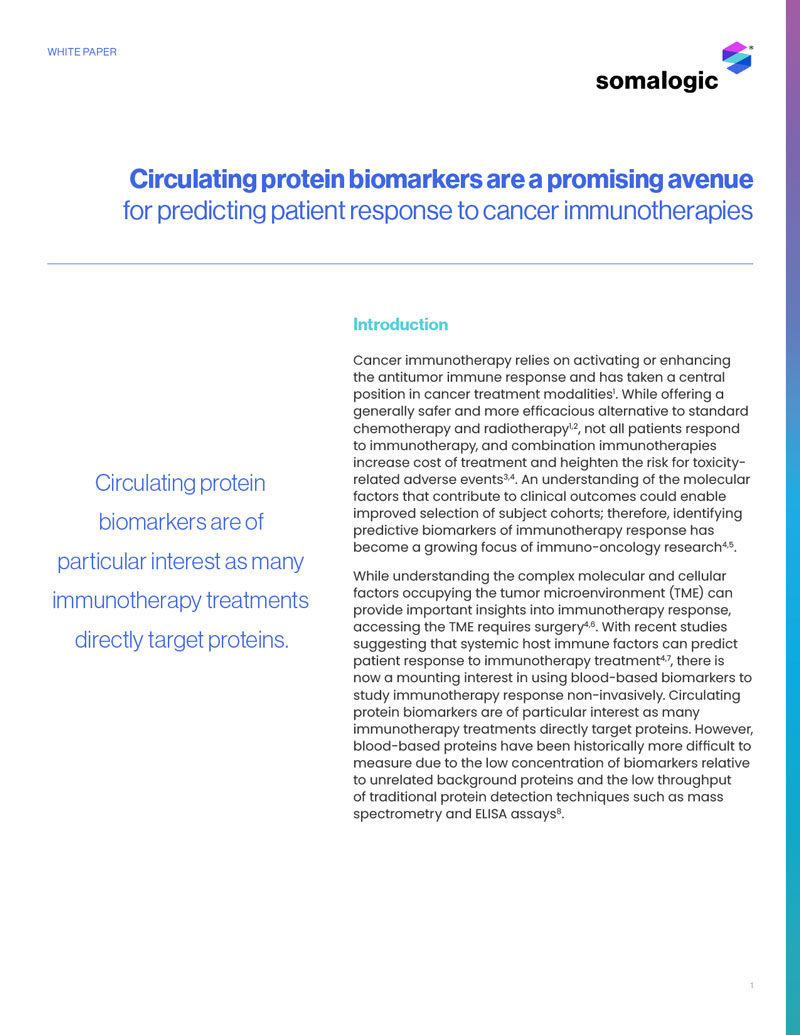Cancer immunotherapy relies on activating or enhancing the antitumor immune response and has taken a central position in cancer treatment modalities. While offering a generally safer and more efficacious alternative to standard chemotherapy and radiotherapy, not all patients respond to immunotherapy, and combination immunotherapies increase cost of treatment and heighten the risk for toxicity-related adverse events. An understanding of the molecular factors that contribute to clinical outcomes could enable improved selection of subject cohorts; therefore, identifying predictive biomarkers of immunotherapy response has become a growing focus of immuno-oncology research.
- Our Biology
- Platform
- Our Science
- SomaScan Platform
- SomaScan Select 3.7K Assay
- SomaScan 11K Assay
- KREX™ Technology: Redefining Antibody Profiling
- Features
- Menu Size
- Scalability
- Sensitivity
- Specificity
- Reproducibility
- Versatility
- Products

We provide our fee-for-service proteomics platform SomaScan® Assay Services at our CLIA-certified, CAP-accredited laboratory.
SomaScan Assay Services are also accessible at all SomaLogic Authorized Sites worldwide.
- Services
- Pre-Analytical Variation
- SomaScan Assay Services
- SomaScan Data Consulting Services
- SomaScan Panels
- SomaSignal Tests
- Reagent Consumables
- Single SOMAmer Reagents
- Authorized Sites
- Authorized Sites Resources
- Become a SomaLogic Authorized Site
- Authorized Sites Worldwide
- Software and Tools
- Become a SomaLogic Authorized Site
- Authorized Sites
- SomaScan Assay Services
- Pre-Analytical Variation
- Scalability
- SomaScan Select 3.7K Assay
- SomaScan Platform
- Platform





